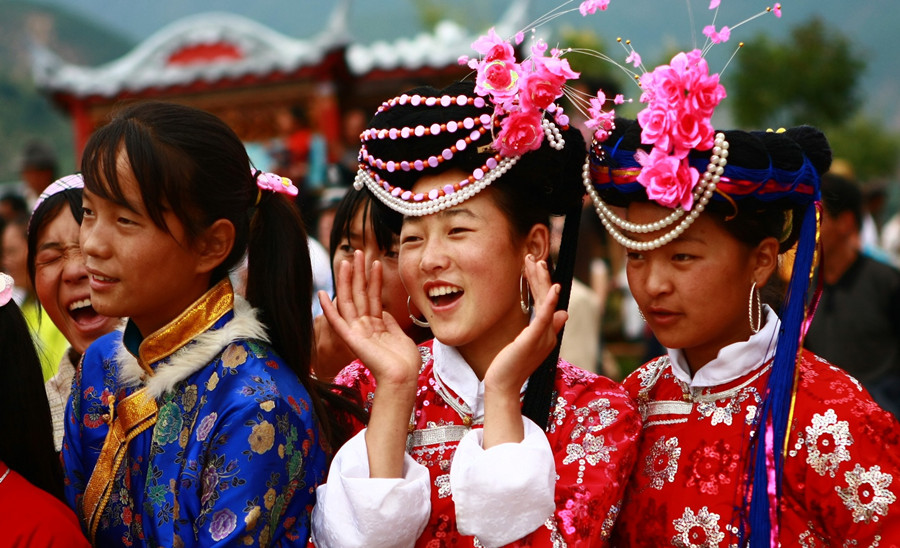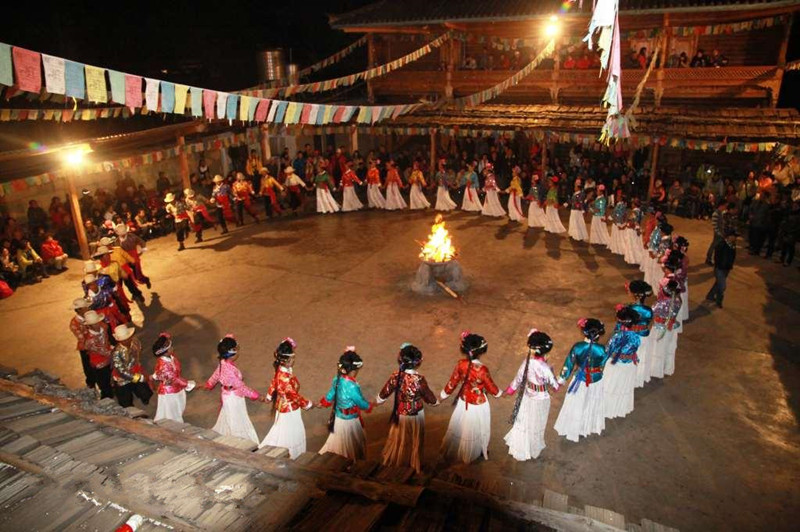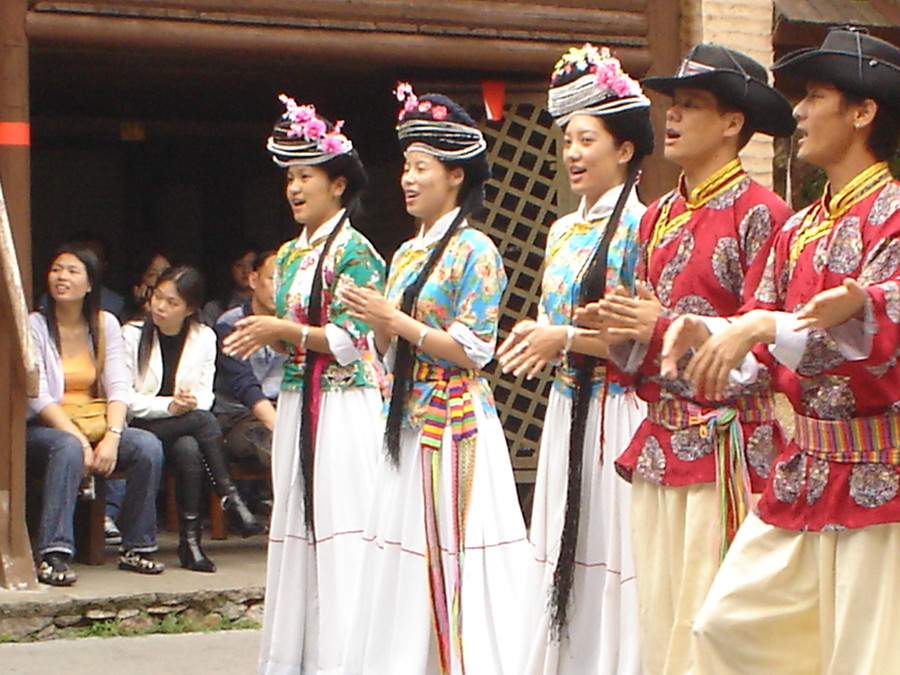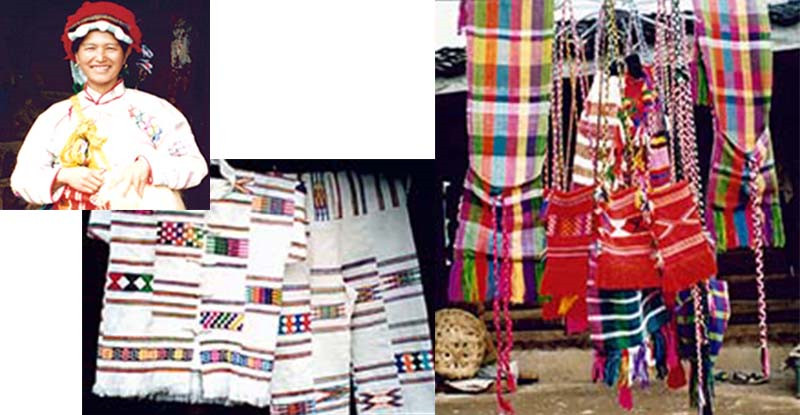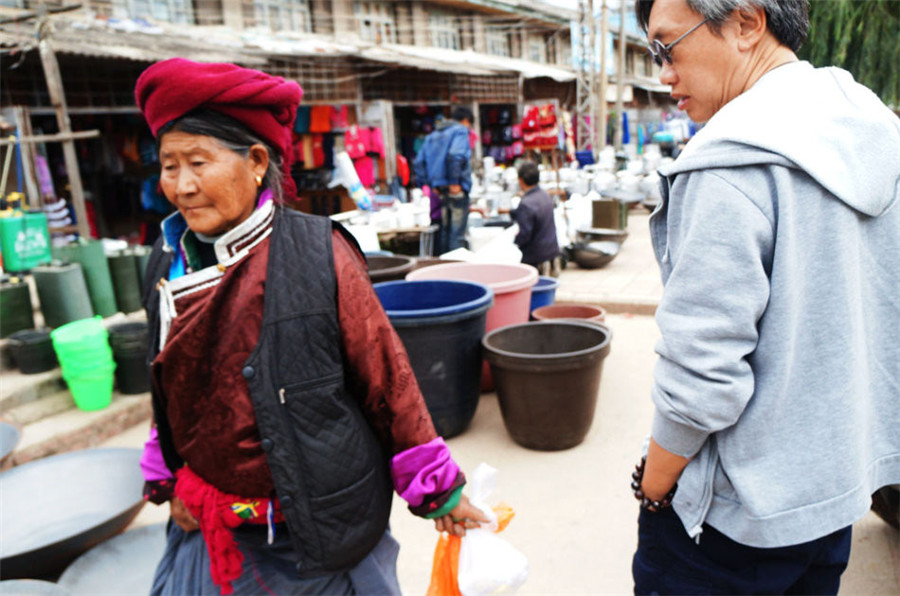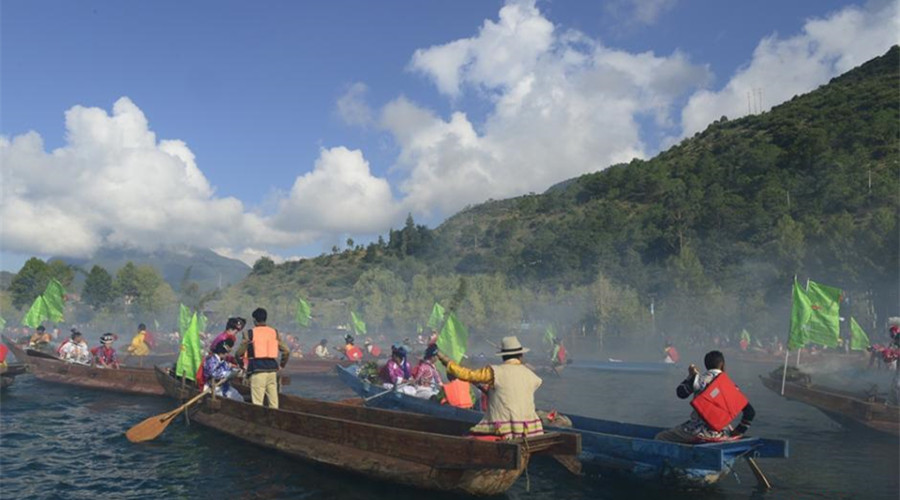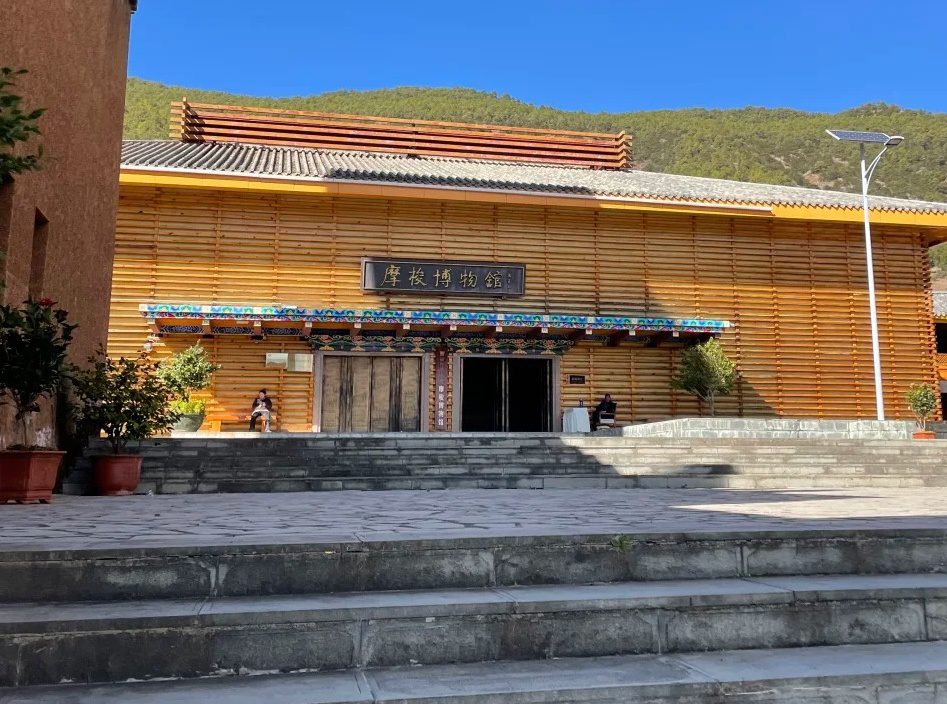
Mosuo Ethnic People
Mosuo people in Yunnan are part of the Naxi ethnic group, one of China’s 55 ethnic minorities. Mosuo people live near Lugu lake, at an altitude of nearly 2,700 meters above sea level. Lugu lake is surrounded by mountains, with Yunnan province to the west and Sichuan province to the east. Around the lake, there are over a dozen Mosuo villages.
Distribution of Mosuo Ethnic People
Mosuo ethnic people live in the northwest of Yunnan, at the Lijiang’s Lugu Lakeside on the junction of Sichuan and Yunnan, with a population of about 50,000. Lugu lake is famous for its unique Mosuo culture and beautiful landscape. The Mosuo people mainly live in the Ninglang County of Lijiang City in the east of the Jinsha River, as well as Sichuan’s Yanyuan, Muli and other counties. With the territory of Ninglang county, Mosuo people mostly inhabit in the Yongning dam by the lake. Culture and Customs of Mosuo Ethnic People The Mosuo minority has its own language and culture, the most special one is their ‘walking marriages’. The concept for marriage, love, women, man and family is quite different from the traditional ones in other parts of China.
Walking Marriage Bridge of Mosuo Ethnic People in Lugu Lake
Luoshui Villages
Luoshui village, the largest Mosuo village around Lugu Lake, has pretty much become a tourist town. As more and more people come to visit from the outside, many of the residential houses along the lake have been converted to shops, hotels and teahouses. People can taste homemade fruit wine in Mosuo homes or simply have a cup of coffee or tea in a teahouse overlooking the lake. Local Mosuo people also share their daily lives with tourists in activities such as fishing and boating, while in the evening, visitors are invited to participate in the festivities as they dance around the bonfire.
More Mosuo Villages
Lige Village Nisai Village Daluoshui Village Xiaoluoshui Village Xiaoyuba Village Zhudi Village
Recommended Tours
2 Days Lijiang Lugu Lake Tour and Matriarchal Society Discovery 6 Days Lijiang Discovery Tour with Lugu Lake and Tiger Leaping Gorge 8 Days Lijiang Tour and Gemu Mountain Goddess Festival Tour At Lugu Lake 10 Days Yunnan Trekking Tour of Tiger Leaping Gorge and from Baoshan Stone Town to Lugu Lake 11 Days Yunnan Classic Tour with Holy Lugu Lake and Mosuo Matriarchal Society (Departure from Shangrila)
Cultural Heritages of Mosuo Ethnic People in Yunnan
Jiacuo Dance of Mosuo Ethnic People Mosuo Museum for Intangible Cultural Heritage
Inheritors
Aqi. Duzhi Panmi Tuoding Wang Ciding
Festivals of Mosuo Ethnic People in Yunnan
Lugu Lake Circling Festival Gemu Mountain Pilgrimage Festival
Keep Reading
Walabie Village Mosuo Ethnic Culture Protection Area in Yongning Town of Ninglang County, Lijiang Village of Mosuo Ethnic People in Yunnan Ethnic Villages, Kunming Mosuo Folk Museum in Lijiang Lugu Lake Culture in Lijiang

 7 Days GolfingTour
7 Days GolfingTour
 8 Days Group Tour
8 Days Group Tour
 8 Days Yunnan Tour
8 Days Yunnan Tour
 7 Days Shangri La Hiking
7 Days Shangri La Hiking
 11 Days Yunnan Tour
11 Days Yunnan Tour
 6 Days Yuanyang Terraces
6 Days Yuanyang Terraces
 11 Days Yunnan Tour
11 Days Yunnan Tour
 8 Days South Yunnan
8 Days South Yunnan
 7 Days Tea Tour
7 Days Tea Tour
 8 Days Muslim Tour
8 Days Muslim Tour
 12 Days Self-Driving
12 Days Self-Driving
 4 Days Haba Climbing
4 Days Haba Climbing
 Tiger Leaping Gorge
Tiger Leaping Gorge
 Stone Forest
Stone Forest
 Yunnan-Tibet
Yunnan-Tibet
 Hani Rice Terraces
Hani Rice Terraces
 Kunming
Kunming
 Lijiang
Lijiang
 Shangri-la
Shangri-la
 Dali
Dali
 XishuangBanna
XishuangBanna
 Honghe
Honghe
 Kunming
Kunming
 Lijiang
Lijiang
 Shangri-la
Shangri-la
 Yuanyang Rice Terraces
Yuanyang Rice Terraces
 Nujiang
Nujiang
 XishuangBanna
XishuangBanna
 Spring City Golf
Spring City Golf
 Snow Mountain Golf
Snow Mountain Golf
 Stone Mountain Golf
Stone Mountain Golf


